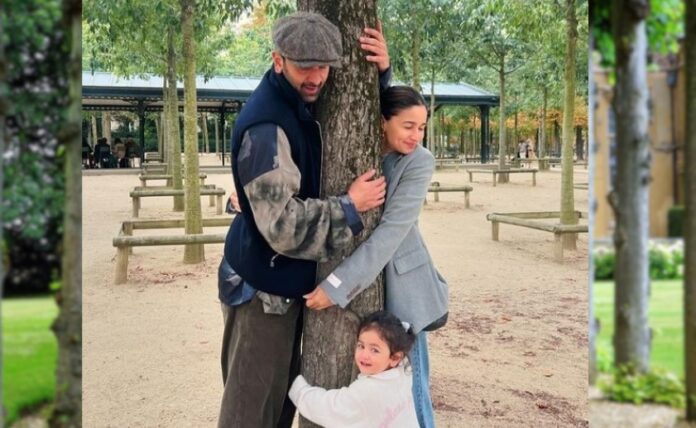Mumbai, October 14, 2024 – Alia Bhatt, one of Bollywood’s leading stars, has always been admired for her openness and vulnerability. The actress, who is currently riding high on the success of her film Jigra, shared that she has long struggled with zoning out during conversations and classes, a symptom she later learned was connected to ADHD.
“I used to get zoned out from a young age,” Alia Bhatt confessed. She further explained that it was only after undergoing a psychological test that she confirmed her diagnosis, something her friends had suspected for a long time. “I now realize why I’m most at peace when I’m in front of the camera or with my daughter, Raha. These are the moments when I feel fully present,” she added. She revealed in a recent interview with The Lallantop, she opened up about her diagnosis of Attention-Deficit/Hyperactivity Disorder (ADHD) and opened up about how it affects her daily life.
But Alia’s journey doesn’t stop at Attention-Deficit/Hyperactivity Disorder. In a candid discussion with sister-in-law Kareena Kapoor Khan on the What Women Want podcast, she also revealed that she has been clinically diagnosed with anxiety. “I am clinically diagnosed with anxiety. Every moment for me is my worst-case scenario,” she shared, describing how her hectic schedule has made it difficult for her to continue therapy. Despite this, Bhatt emphasized the importance of “me-time” and how acting on set often provides her with a sense of peace.
Alia Bhatt on ADHD and Anxiety: A Journey of Self-Awareness and Peace

Alia’s revelation shines a light on the intersection of Attention-Deficit/Hyperactivity Disorder and anxiety, two conditions that often coexist, making life more challenging for those affected. ADHD, which is commonly diagnosed in children, can persist into adulthood in some cases, manifesting as a variety of symptoms. These may include difficulty focusing, restlessness, impulsivity, and issues with organization or following through on tasks.
Dr. Sonal Anand, a psychiatrist at Wockhardt Hospitals, Mira Road, explains: “People with ADHD often find it difficult to focus on multiple things at once, stay organized, or control their impulses. They may also engage in restless behaviors like shaking their legs or talking excessively.”
Anxiety, on the other hand, can lead to constant worry, restlessness, and feelings of being overwhelmed. When ADHD and anxiety co-occur, the effects can be compounded, making it even more difficult to navigate daily life. According to Dr. Nirnay Sachdeva, MD, a neuropsychiatrist at Ujala Cygnus Amrit Dhara in Karnal, Haryana, “When anxiety is present alongside ADHD, it can heighten symptoms like inattention, irritability, and emotional distress.”
Living with both ADHD and anxiety can feel like battling a constant storm. People who experience both conditions may find it hard to focus, stay organized, or maintain relationships, often feeling overwhelmed by simple tasks. “Anxiety can exacerbate ADHD symptoms like inattention and restlessness, leading to increased stress and emotional upheaval,” says Dr. Sachdeva.
For individuals dealing with both conditions, social interactions can become particularly challenging. People may avoid social events, as these can trigger both ADHD symptoms and anxiety, leading to heightened discomfort. It becomes even harder to sustain long-term friendships or professional relationships due to the emotional toll of managing these disorders.
Despite the challenges, it is possible to manage both ADHD and anxiety effectively. Recognizing the symptoms and seeking the right professional help is the first step. Therapy, including cognitive-behavioral therapy (CBT), can be particularly helpful in managing anxiety and improving emotional regulation. Medication may also play a role in alleviating symptoms of both ADHD and anxiety.
Additionally, building healthy habits like regular exercise, adequate sleep, and mindfulness practices can significantly improve mental well-being. For people like Alia, who find solace in creative work, pursuing passions and hobbies that bring joy can act as powerful forms of self-care.
Alia’s candid sharing about her struggles with Attention-Deficit/Hyperactivity Disorder and anxiety not only opens up important conversations but also helps destigmatize these mental health conditions. It’s essential to recognize that ADHD is not just a childhood disorder but something that can affect people well into adulthood. Similarly, anxiety is a widespread condition that many individuals, regardless of age or background, deal with daily.
With greater awareness and support, individuals grappling with these conditions can lead fulfilling lives, just as Alia continues to do. Her journey reminds us that mental health challenges are nothing to be ashamed of, and with the right tools, everyone can find their peace.

